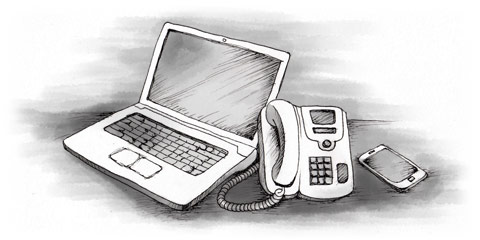Blocked sites
More than 5.5 million sites are blocked by Saudi Arabia’s national firewall, including sites relating to; porn, LBGT+ and human rights issues, terrorism, critic against the kingdom and/or the royal family, anything against Islam and satire. Individual sites are also frequently blocked and unblocked depending on the political atmosphere. Practically, this means you won’t have access to adult entertainment, various international news sites or streaming services.
The ban on VoIP calls, such as Skype, Facetime and Whatsapp, was lifted in 2017, but calls are still frequently restricted.
Monitoring personal content
The heavy censorship also extends to content stored on your personal devices. Physical searches of personal items, such as laptops and mobile phones, are not uncommon so you need to be careful with what material you have on them. Revealing beach photos, for example - not to mention nudes - stored on your mobile could get you in trouble.
As well as sites being blocked, all online traffic is very closely monitored. You are advised not to post any sensitive material (anything that can be considered anti-islamic, offensive, harmful or illegal in Saudi Arabia), on public accounts to avoid any misunderstandings; journalists, bloggers, and human right activists have faced heavy punishments after posting ‘suspicious’ material online.
VPN provides some protection
If you want to access blocked sites and/or protect your privacy when online, getting a good quality VPN on your computer can be a good idea, but remember that even with a VPN, you can still get caught accessing blocked sites.
Generally, VPN sites are blocked in Saudi Arabia so you will need to get one sorted before you arrive. Make sure you invest in a good quality VPN service and avoid free ones as they often compromise your security. It’s a good idea to test a VPN’s security before using one. A good VPN should have:
- military grade encryption
- a 'no logs policy' (make sure the VPN does not keep details of your online activity)
- a kill switch (this stops all internet traffic if you lose connection)
- no leaks that could reveal your identity (a good VPN should keep your real location - IP address - hidden)


